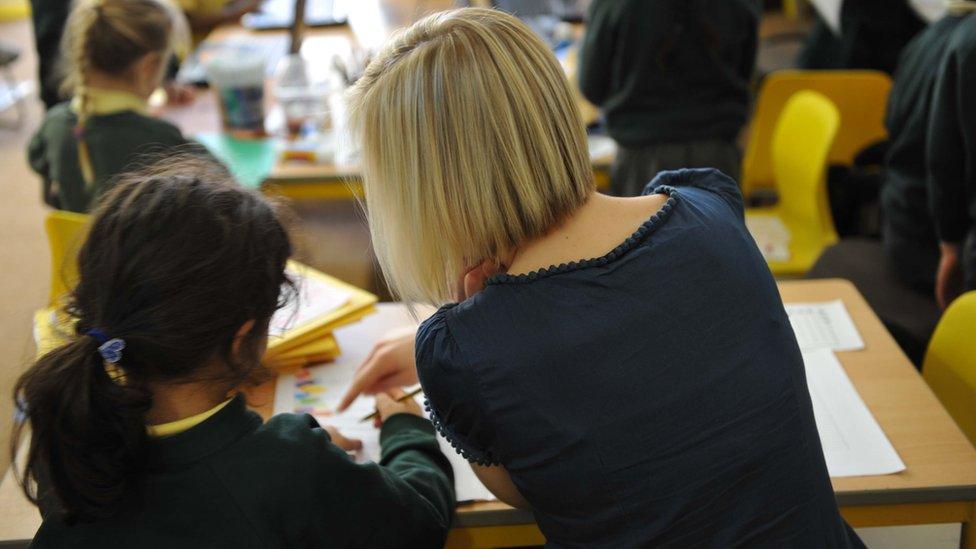Ballot set to close in crucial vote over teachers' pay
- Published
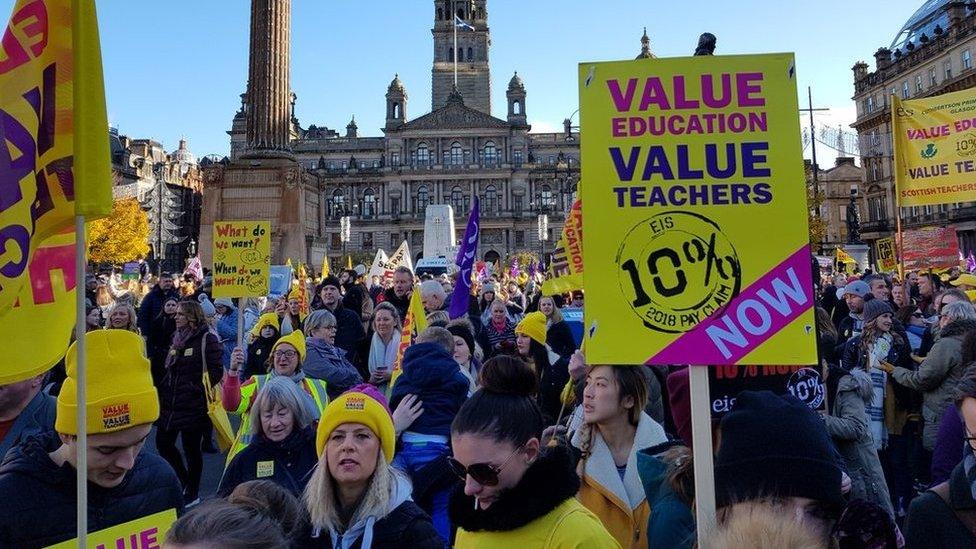
Teachers staged a rally in George Square last month
Voting is set to close in a ballot by two teachers' unions on whether to reject a pay deal.
The EIS and SSTA - along with other unions - have been campaigning for a 10% rise since the start of the year.
They argue that teachers' pay has not kept up with comparable professions and fallen by a fifth in value in real terms since 2010.
The headline offer from councils and the government is worth 3% although they say many would get more.
An estimated 30,000 people attended a march and rally in support of a 10% rise last month.
Workload and stress
Councils and the government argue that a combination of a 3% increase for all staff earning up to £80,000, restructuring the main grade scale and annual progression means that the majority of teachers will receive a rise of between 5% and 11%.
Many teachers are also worried about the levels of bureaucracy and change they have faced - adding to their workload and personal stress.

Analysis
by BBC Scotland education correspondent Jamie McIvor
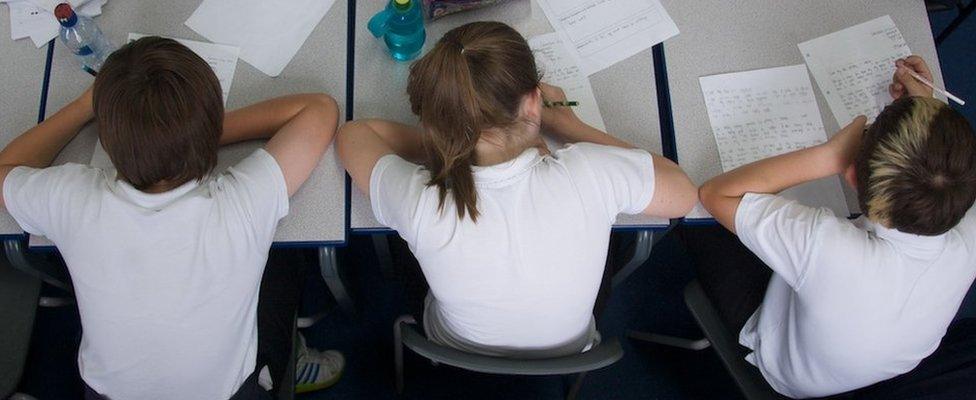
Last week I attended an awards ceremony celebrating the achievements of learners and schools across Scotland.
The stories about the dedication of learners and teachers - and even of lives transformed - can be humbling and inspirational.
I also visited a secondary school to talk to an S3 English class about language and help with their Children in Need fundraising.
The school had just moved to a new building and the staff and students were absolutely buzzing.
But I also had two conversations with teachers elsewhere which were in stark contrast.
They were worried about colleagues who were off because of stress, excessive workloads, problems filling vacancies and other important issues facing the profession. Before anyone asks, neither of those two were clockwatchers.

The results of the vote are expected to be announced either late on Tuesday afternoon or on Wednesday.
But both unions are anticipating a decisive rejection of the offer.
If the offer is rejected, representatives will seek fresh talks with the Scottish government and councils on an improved pay offer.
Industrial action
If this does not happen, the next steps for the unions would be a move towards industrial action.
Union law now means that a teachers' union would require substantial support for action.
Normally, the EIS would hold an indicative or "unofficial" ballot on industrial action first.
This would not provide the legal backing for action but could give an indication of the strength of feeling and provide a powerful negotiating tool.
An official ballot needs to be conducted under strict rules.
Before action can take place, 50% of members need to vote and at least 40% of those who are eligible to take part need to back action.
However, some in the union argue that on this occasion, it may be appropriate to move straight towards an official ballot.
- Published2 November 2018
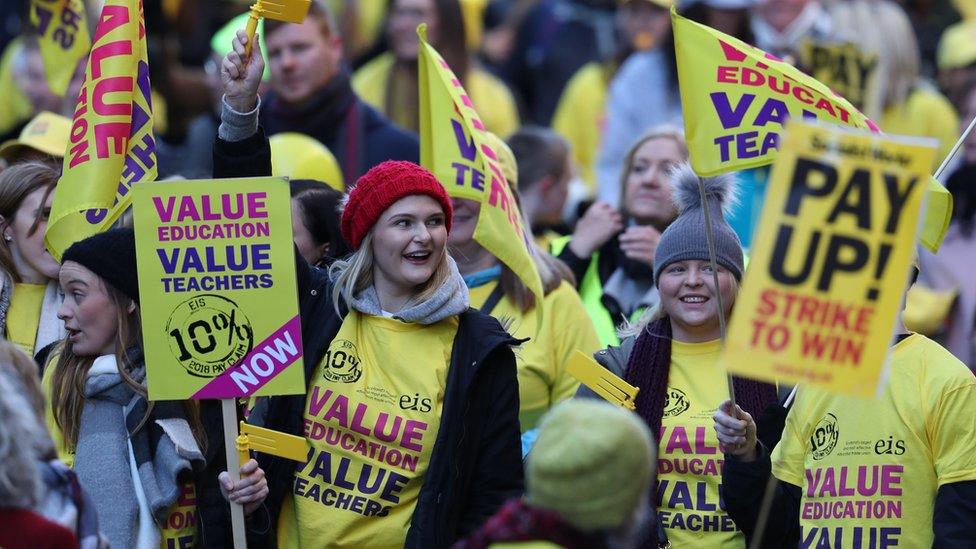
- Published30 October 2018
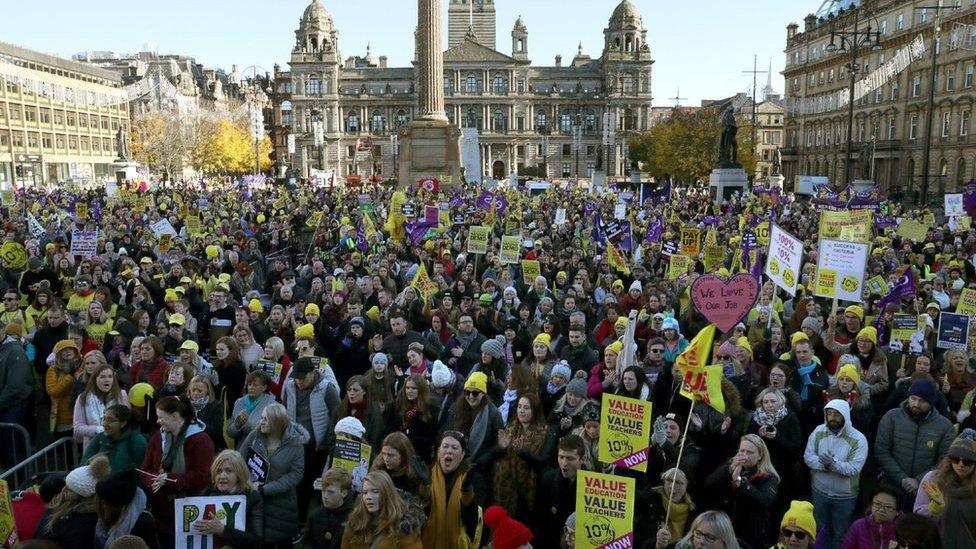
- Published27 October 2018

- Published11 October 2018
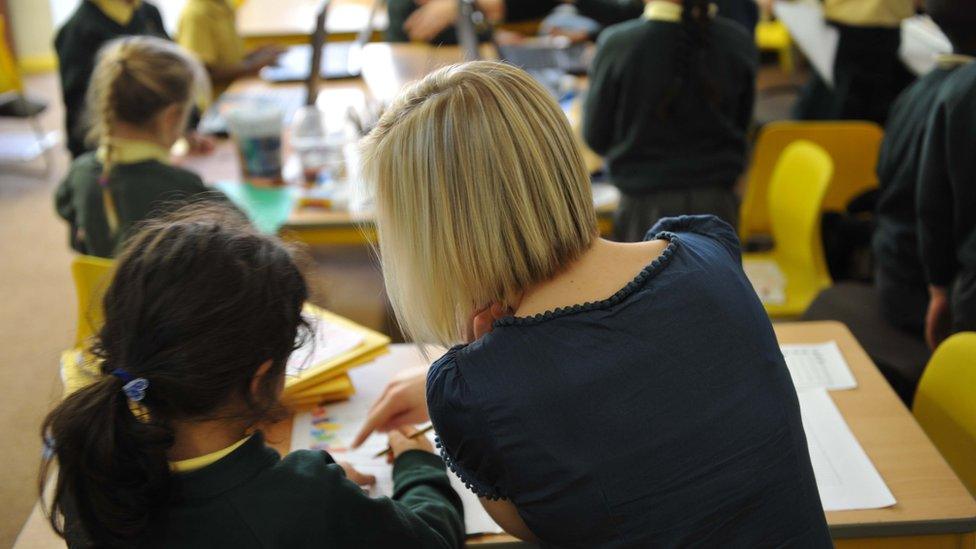
- Published11 September 2018
